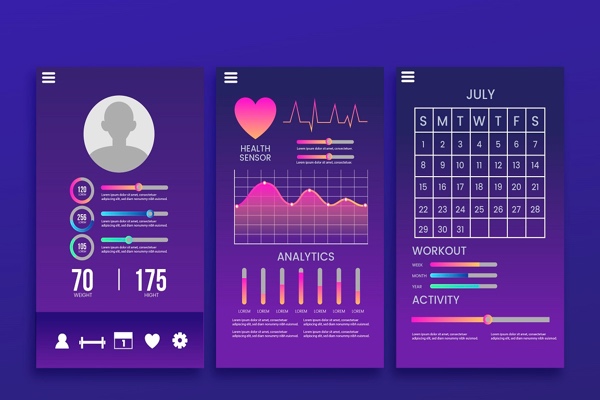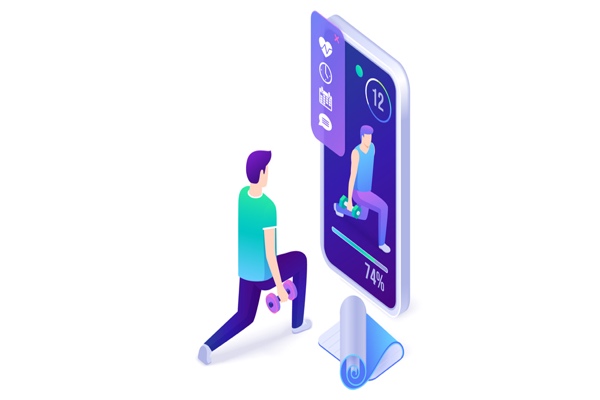Usability is an important factor in the success of a mobile app. User experience and speed are also factors that affect the usability of a mobile app. In order to improve usability, avoid implementing a clunky navigation system or micro-interactions that add no value. Another problem is lags or inappropriate spaces for the clickable elements. Moreover, use of mismatched fonts and low-res images will decrease the usability of an app.
Speed
The quality of your mobile app is an important factor in determining its success. Poor quality applications can slow down your development process, especially if you lack automation for testing and releasing your app. It can even cause your users to abandon your app. If you're looking for the perfect mobile app development company, here are a few tips to help you get started. Speed can be measured through KPIs (key performance indicators), which measure the technical performance of your mobile application. Users expect fast-loading pages and fast-responding forms, so if your app is slow, you might lose them.
Consider this: according to a report by Akamai, 39% of mobile consumers are dissatisfied with their online experience. Slow loading times and crashes are the main causes of these experiences. In addition, 57% of mobile consumers abandon the request after three seconds, and 8/10 won't return. If your mobile app is slow, it could cause even more problems, such as crashing or freezing.
Speed determines how long your app takes to load before a user can interact with it. The slower your app loads, the more likely users will abandon it. If you can't load your app quickly enough, consider profiling your GPU rendering and using a hierarchy viewer to improve the performance of your app. As the user experience is the foundation of your app's success, speed is a critical factor.
User experience
The success of a mobile app depends on the user experience (UX) of the app. Depending on the type of app, the first impression can influence the way users interact with it. As a result, UX design is crucial to ensure that the user journey is not disrupted by offers that interrupt the flow of interaction. According to statistics, 46% of users would not buy from a brand again after experiencing a bad mobile experience.
A good user experience begins with an intuitive navigation system. For example, a CNN app provides users with three choices to select what they want to view. There's no need to clutter the navigation bar with unnecessary options, which can irritate or confuse users. An app's interface can also draw upon a user's preferred visuals, sounds, and gestures. Short bursts of input, as opposed to long forms, are best served by an intuitive user experience.
A great user experience also helps you increase revenue and customer retention. The user interface should be easy to use, intuitive, and inviting. A good UX is also more likely to encourage users to share the app with their friends and family. This is vital for generating good revenue. In addition to improving customer retention, a great user experience will also increase a company's recognition. It's not always possible to create a perfect mobile app. However, if you make sure that the user experience is a good one, your business will be rewarded with a large number of customers.
Compatibility
Developing a mobile app requires careful consideration of compatibility factors. Compatibility with various hardware and software configurations is important for the successful use of your application. Compatibility testing includes short assessments of the software's core functionality to ensure that it runs smoothly on multiple platforms. It also includes examination of various hardware dimensions found in mobile devices such as cameras, GPS capabilities, and motion sensors. Other compatibility factors include processing speed, main memory, and screen size.
Mobile app compatibility includes API compatibility, multimedia support, and software features built into the mobile application. Mobile games that are not fully tested for compatibility may face problems in the app store. Players may complain about performance, user experience, interface graphics, and app navigation. Lack of compatibility testing may also affect functional capabilities and cause negative feedback from users. In addition, the quality of your app may suffer if it is not optimized for all versions of each device.
During the testing process, focus on devices that are fully compatible with your app. If possible, focus on testing the app on at least one device from each manufacturer. Focus on devices with unique qualities or features, and test the functionality of each one. This way, you can ensure that all versions of the app will be compatible with different types of mobile devices. Once you've gotten a feel for the devices that will be most compatible, it's time to start testing on the devices that are fully compatible.
Unique functionality
A unique application is characterized by its ability to synchronize across multiple devices in real-time. This helps users work on the current file on their preferred device and access it from any location. Furthermore, mobile applications can work offline, allowing users to access them in remote locations. Offline functionality increases the scalability of the application and expands its user base. Unique functionality of a mobile application should be incorporated into every phase of its development, from ideation to release.
Easy to use
The success of your mobile app depends on how easy it is for its users to navigate through it. Users who find the app too complicated or confusing will probably delete it. Users have little patience when using complicated applications. Simplicity helps build trust between you and your customers. You can categorize users by their profession, age, or other characteristics. Make sure your app works for each group in the best possible way.
As an app developer, you need to understand your audience and what they are looking for. You must align your goals with theirs and provide a simple experience. This is the key to creating a successful app. Consider all the different communication channels your potential customers use. Whether they are using Facebook Messenger or a messaging app, consider your clients' needs when designing your app. Once you know your audience, you can build an app that meets their needs.
The next step in building a successful mobile application is to design it as easy as possible for users to use. This will help the app get the desired popularity and use. Ultimately, this means providing real value for your customers. These are the kinds of features that customers want in an app. A good app should be fun, easy to use, and easy to understand. If these are lacking in your app, you will have to make it more difficult for your customers to use it.
Marketing
While there are many different marketing factors that contribute to the success of a mobile application, there are some general rules that can be applied to all applications. The prelaunch stage of the marketing cycle is focused on building brand visibility and awareness. This stage requires clear messaging and positioning. Understanding what your customers want from your app will help you design your app to solve their problems and provide value to them. Here are some tips to help you succeed at this stage.
Admit it, acquiring users is important. But keeping them is just as important. Retaining your users is the key to creating loyal customers. To retain existing users, create a marketing plan that incorporates both paid and organic activities. Tie these activities to the most important KPIs of your app. Consider using a mobile attribution tool to measure the ROI of your marketing campaigns.
Consider your competitors. Know their strengths and weaknesses and incorporate these into your app. Then, develop a feature matrix based on their strengths and weaknesses. This feature matrix should include features like eye-catching identifiers and pricing. While creating an app, try to avoid copying any flaws of other apps. In addition, make sure your app is different from other apps. The more distinct your app is, the better your chances of success.








.png)




.png)


.png)

